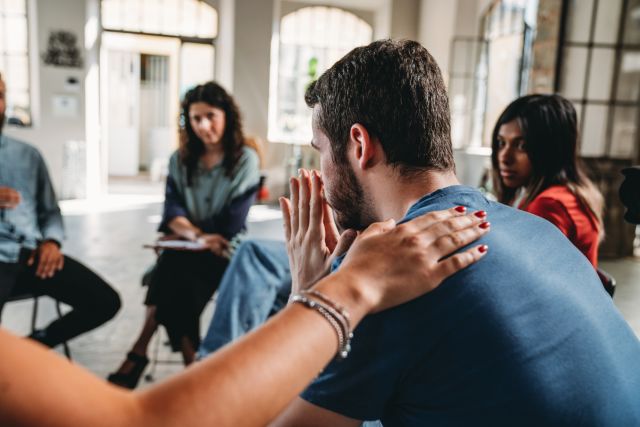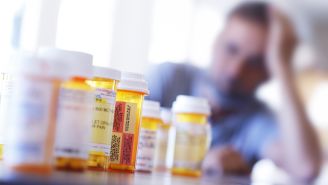Recovery is different for everyone, but it’s a process in which individuals work to create a positive change in their overall behavior, outlook, and identity. Individuals usually reach the stage of recovery after remission of symptoms, meaning the elimination or diminished level of symptoms are below a harmful level. Considering the fact that substance use disorders (addiction) are susceptible to relapse, substance use should be completely discontinued and healthy habits should be adopted in order to maintain recovery.
Though abstinence is very important, it only makes up one part of the entire recovery process. Recovery typically consists of three components: abstinence, personal growth and service to others. It can be reached through a variety of pathways and is a very personal experience for each individual who chooses to be in recovery. For the person with the addiction, total abstinence from substance use is the first step towards recovery, but is a necessary step to experience the other benefits that recovery has to offer.
The second step is making a commitment to personal growth. It’s essential for individuals to be in recovery, but often can be one of the most difficult and challenging steps to take. To be committed to personal growth and live a life in recovery, an individual needs to do four things on a daily basis:
- Recognize and stop the things that cause dopamine surges, or the “high” individuals feel when using drugs.
- Learn how to manage stress effectively.
- Learn how to cope with drug cravings and cues.
- Learn how to control their own behavior.
With all four of these elements in place, they are more likely to experience recovery on an ongoing basis. The more support that the individual has from family and friends daily to accomplish these things, the more likely they will be to experience recovery.
Service to others has been found to be an important part of recovery. There’s evidence that being civically engaged and fulfilling important roles helps individuals maintain recovery. Holding a job, being a responsible parent or neighbor and any activity that gives the individual a sense of purpose can contribute. There’s an important saying in recovery: “In order to keep what you have, you have to give it away.” It means that just as an individual helped you in your recovery process, you can and should be there for other individuals who enter the recovery process after you.
In addition to abstinence, personal growth and service, recovery support services are important to helping an individual stay in recovery and avoid relapse. Recovery support services provide emotional support, monitoring and management of the recovering individual.
Recovery support services
Mutual aid groups. These voluntary addiction support groups are member-run and focus on personal-change goals. Members support each other through a shared problem and can provide advice from personal experiences. Alcoholics Anonymous, Narcotics Anonymous, Women for Sobriety and SMART Recovery are just a few examples of effective mutual aid groups.
AI-Anon and Nar-Anon family groups. These groups provide emotional support to friends and family members who have suffered as a result of a loved one facing a substance use disorder—and who want to know how to support someone in recovery.
Recovery support is also offered through one-on-one recovery coaching, residential recovery housing, recovery management check-ups, telephone case monitoring, educational systems and social media outlets. Speak with your healthcare provider and family members about the best option for you.






